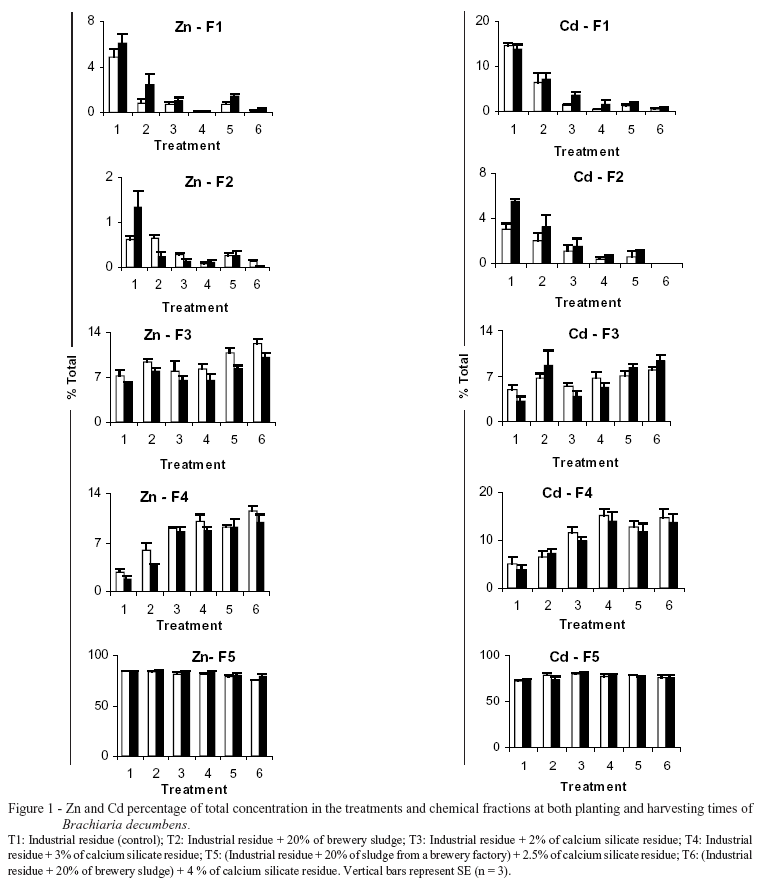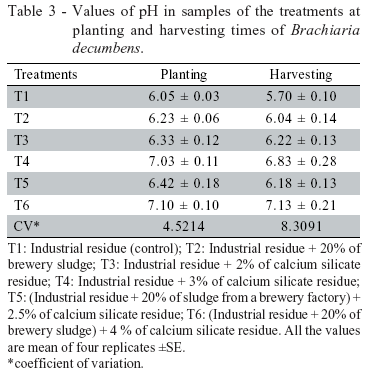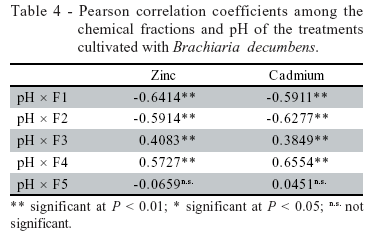Phytostabilisation of a contaminated soil with heavy metals is considered a very appropriate technology to reduce erosion and dispersion of contaminants. A greenhouse study was conducted to evaluate the effects of both chemical amendments (calcium silicate and brewery sludge), and phytoremediation using the grass Brachiaria decumbens, on an industrial residue contaminated with Zn and Cd (industrial residue). Industrial residue samples placed into 30 L containers were amended with 20% brewery sludge, calcium silicate (2%, 3%), and 20% of brewery sludge + calcium silicate (2.5%, 4%), and were compared to the control treatment (non-amended residue). After pH stabilization, B. decumbens plants were grown on all treatments in order to evaluate the ability of the species to tolerate high Zn and Cd concentrations from the residue. Samples were collected twice, at planting and harvesting, for pH determination and simple extractions with water, sodium nitrate, acetic acid and DTPA. Differences in Zn and Cd concentrations in extracts allowed to estimate the concentrations of these elements in the most likely chemical forms they are found in the residue. Alkaline and organic industrial amendments reduced Zn and Cd percentages, both in the soluble and exchangeable fractions, as well as caused the predominance of Zn and Cd in the most stable chemical fractions, such as complexed and precipitated compounds. B. decumbens was tolerant to Zn and Cd from the industrial residue after addition of the amendments.
phytoremediation; inertization; contamination; heavy metals






